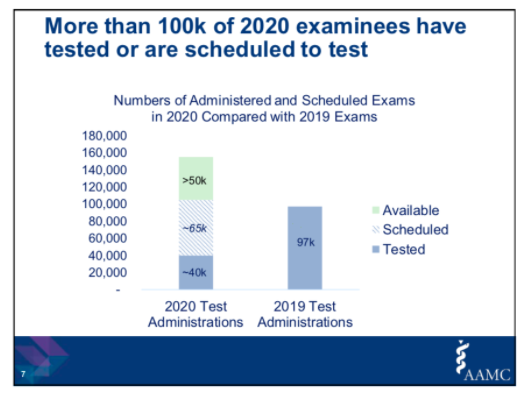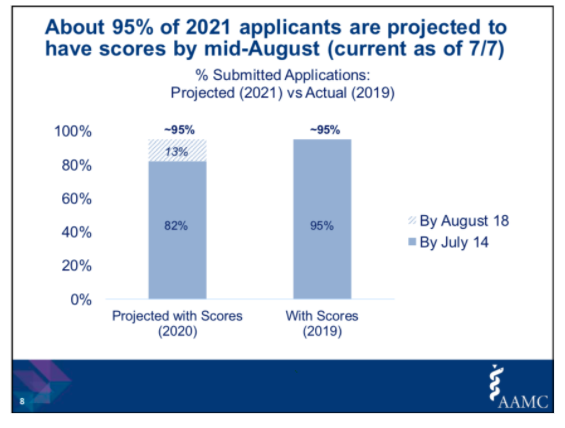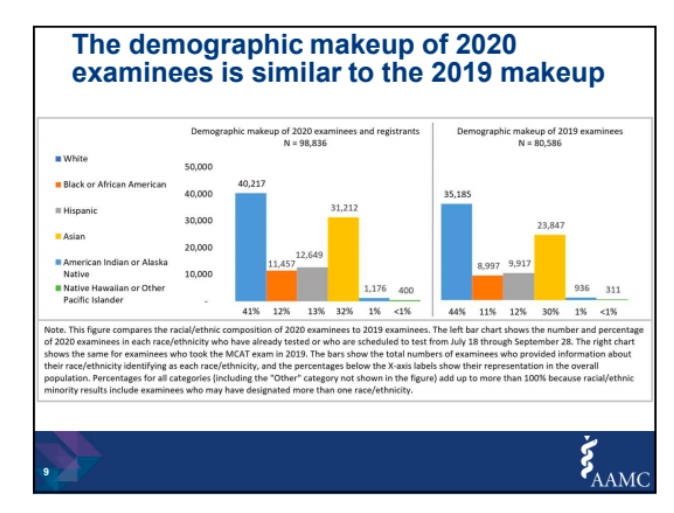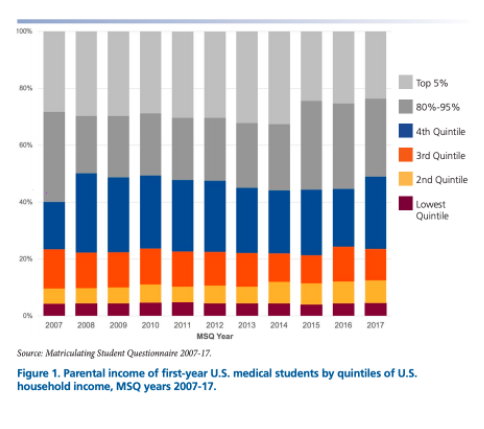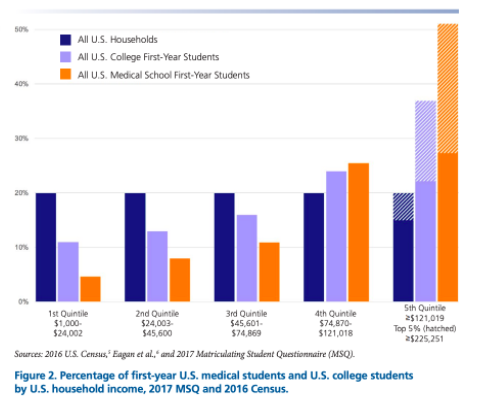Today, @AAMC_MCAT held a webinar that was unannounced on social media. The slides from this webinar, as well as additional files, were sent to us (unprompted) by several attendees so that we could see the data the AAMC presented.
(This is the https://abs.twimg.com/emoji/v2/... draggable="false" alt="🧵" title="Thread" aria-label="Emoji: Thread">we mentioned earlier)
https://abs.twimg.com/emoji/v2/... draggable="false" alt="🧵" title="Thread" aria-label="Emoji: Thread">we mentioned earlier)
1/
(This is the
1/
As far as we can tell, it was billed as an update from AAMC to med schools on how the 2020-2021 AMCAS cycle is progressing. In the words of one attendee, however, “It was mostly AAMC attempting to get ahead of you all with messaging.” 2/
It is important to note that we’ve made extensive efforts at transparency. It is disappointing to learn that AAMC has not. We appreciate the allies who have reached out to share this and other information. We hope that someday applicants can be included in the conversation. 3/
We also received a few documents/figures that show that the AAMC is well aware of the issues applicants are facing this application cycle. 4/
So, we begin this thread with the understanding that AAMC has been listening to applicant concerns but still failing to respond appropriately. Here are some data that they used in their webinar: 5/
. @AAMC_MCAT presents scheduled tests to show that they have appropriately handled rescheduling. This fails to account for unforeseen cancellations that are already occurring in states like FL, CA, and NC as COVID-19 cases spike.
This data also shows that there are 65k students whose lives could be put at risk for the MCAT. This does not account for families of examinees that could also be exposed to the virus once their MCAT examinee comes home.
The AAMC then continues to use projections that do not account for the unpredictability of the pandemic to show that applicants will have scores by mid-August. Again, data shown is just a prediction. Many exams are still being canceled.
. @AAMC_MCAT then breaks down the racial/ethnic makeup of scheduled examinees in order to counter our concerns about COVID-19’s impact on applicant diversity. This graph again assumes that everyone with a scheduled exam…
...will not face cancellations. One major problem here is that BIPOC communities are much harder hit by the pandemic. As COVID-19 rages on, we can expect cancellations that will disproportionately harm low-SES and BIPOC applicants.
These communities may also have lesser ability to travel to test centers located away from COVID-19 hotspots, which is what many white high-SES students have been doing. As such, we can expect to see this graph shift as time goes on.
We must also consider otherwise excellent applicants who can’t take the exam this summer due to health and safety concerns. SEA collectively grieved while reading this. Wonderful physicians WILL be wiped out of the pipeline this year. https://twitter.com/MariaOfthesaint/status/1282496460337094658?s=20">https://twitter.com/MariaOfth...
Notably absent from this presentation is a graph on the impact on low-SES students. In the past, the AAMC has released data like this that breaks down medical students by household income, so we know they do research on the subject.
So why didn’t @AAMC_MCAT show data from their federal assistance program (FAP) numbers to compare 2019 applicants to 2020 projected applicants in this webinar? (We’ll save our problems with FAP for another thread.)
Low-SES students, BIPOC students, are already harder hit by the pandemic than white high-SES students. The complications with this cycle have already forced many low-SES applicants to call it quits for this cycle or forever.

 Read on Twitter
Read on Twitter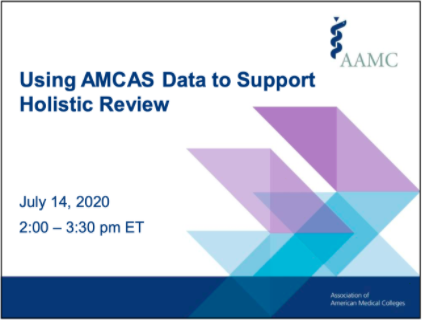 we mentioned earlier)1/" title="Today, @AAMC_MCAT held a webinar that was unannounced on social media. The slides from this webinar, as well as additional files, were sent to us (unprompted) by several attendees so that we could see the data the AAMC presented.(This is the https://abs.twimg.com/emoji/v2/... draggable="false" alt="🧵" title="Thread" aria-label="Emoji: Thread">we mentioned earlier)1/" class="img-responsive" style="max-width:100%;"/>
we mentioned earlier)1/" title="Today, @AAMC_MCAT held a webinar that was unannounced on social media. The slides from this webinar, as well as additional files, were sent to us (unprompted) by several attendees so that we could see the data the AAMC presented.(This is the https://abs.twimg.com/emoji/v2/... draggable="false" alt="🧵" title="Thread" aria-label="Emoji: Thread">we mentioned earlier)1/" class="img-responsive" style="max-width:100%;"/>


